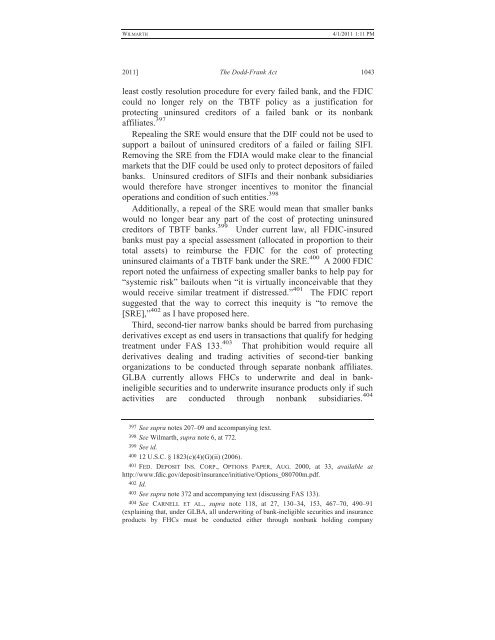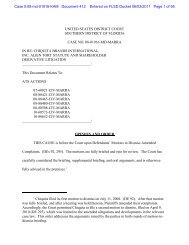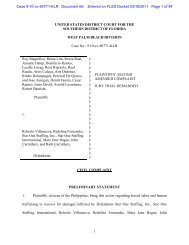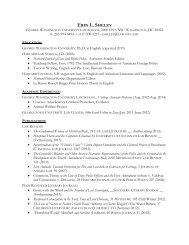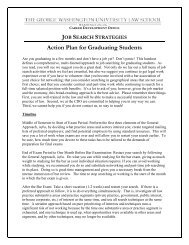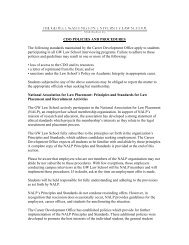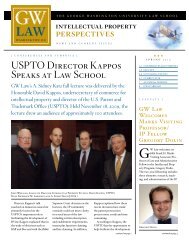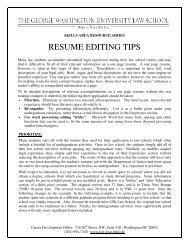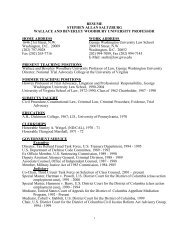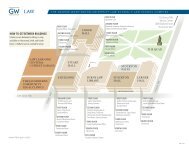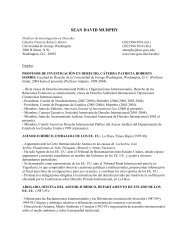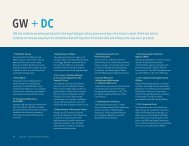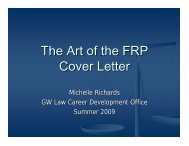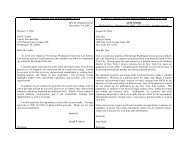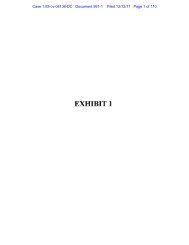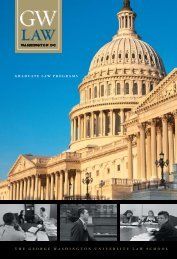CLE Materials for Panel #1 - George Washington University Law ...
CLE Materials for Panel #1 - George Washington University Law ...
CLE Materials for Panel #1 - George Washington University Law ...
Create successful ePaper yourself
Turn your PDF publications into a flip-book with our unique Google optimized e-Paper software.
WILMARTH<br />
4/1/2011 1:11 PM<br />
2011] The Dodd-Frank Act 1043<br />
least costly resolution procedure <strong>for</strong> every failed bank, and the FDIC<br />
could no longer rely on the TBTF policy as a justification <strong>for</strong><br />
protecting uninsured creditors of a failed bank or its nonbank<br />
affiliates. 397<br />
Repealing the SRE would ensure that the DIF could not be used to<br />
support a bailout of uninsured creditors of a failed or failing SIFI.<br />
Removing the SRE from the FDIA would make clear to the financial<br />
markets that the DIF could be used only to protect depositors of failed<br />
banks. Uninsured creditors of SIFIs and their nonbank subsidiaries<br />
would there<strong>for</strong>e have stronger incentives to monitor the financial<br />
operations and condition of such entities. 398<br />
Additionally, a repeal of the SRE would mean that smaller banks<br />
would no longer bear any part of the cost of protecting uninsured<br />
creditors of TBTF banks. 399 Under current law, all FDIC-insured<br />
banks must pay a special assessment (allocated in proportion to their<br />
total assets) to reimburse the FDIC <strong>for</strong> the cost of protecting<br />
uninsured claimants of a TBTF bank under the SRE. 400 A 2000 FDIC<br />
report noted the unfairness of expecting smaller banks to help pay <strong>for</strong><br />
“systemic risk” bailouts when “it is virtually inconceivable that they<br />
would receive similar treatment if distressed.” 401 The FDIC report<br />
suggested that the way to correct this inequity is “to remove the<br />
[SRE],” 402 as I have proposed here.<br />
Third, second-tier narrow banks should be barred from purchasing<br />
derivatives except as end users in transactions that qualify <strong>for</strong> hedging<br />
treatment under FAS 133. 403 That prohibition would require all<br />
derivatives dealing and trading activities of second-tier banking<br />
organizations to be conducted through separate nonbank affiliates.<br />
GLBA currently allows FHCs to underwrite and deal in bankineligible<br />
securities and to underwrite insurance products only if such<br />
activities are conducted through nonbank subsidiaries. 404<br />
397 See supra notes 207–09 and accompanying text.<br />
398 See Wilmarth, supra note 6, at 772.<br />
399 See id.<br />
400 12 U.S.C. § 1823(c)(4)(G)(ii) (2006).<br />
401 FED. DEPOSIT INS. CORP., OPTIONS PAPER, AUG. 2000, at 33, available at<br />
http://www.fdic.gov/deposit/insurance/initiative/Options_080700m.pdf.<br />
402 Id.<br />
403 See supra note 372 and accompanying text (discussing FAS 133).<br />
404 See CARNELL ET AL., supra note 118, at 27, 130–34, 153, 467–70, 490–91<br />
(explaining that, under GLBA, all underwriting of bank-ineligible securities and insurance<br />
products by FHCs must be conducted either through nonbank holding company


